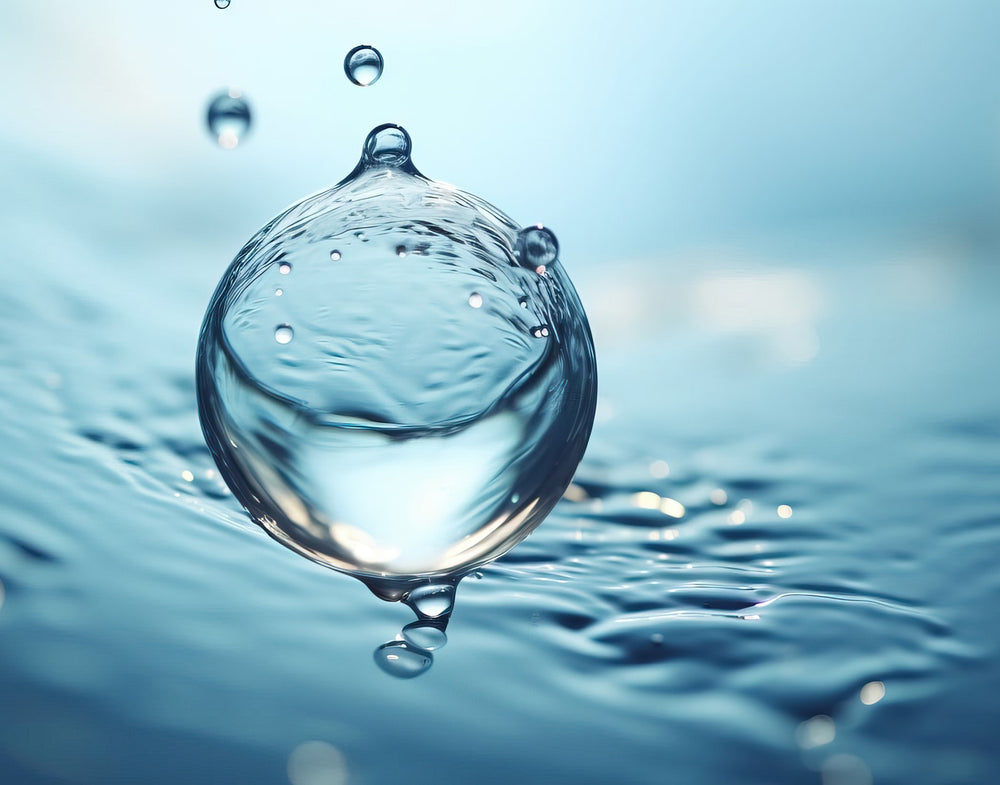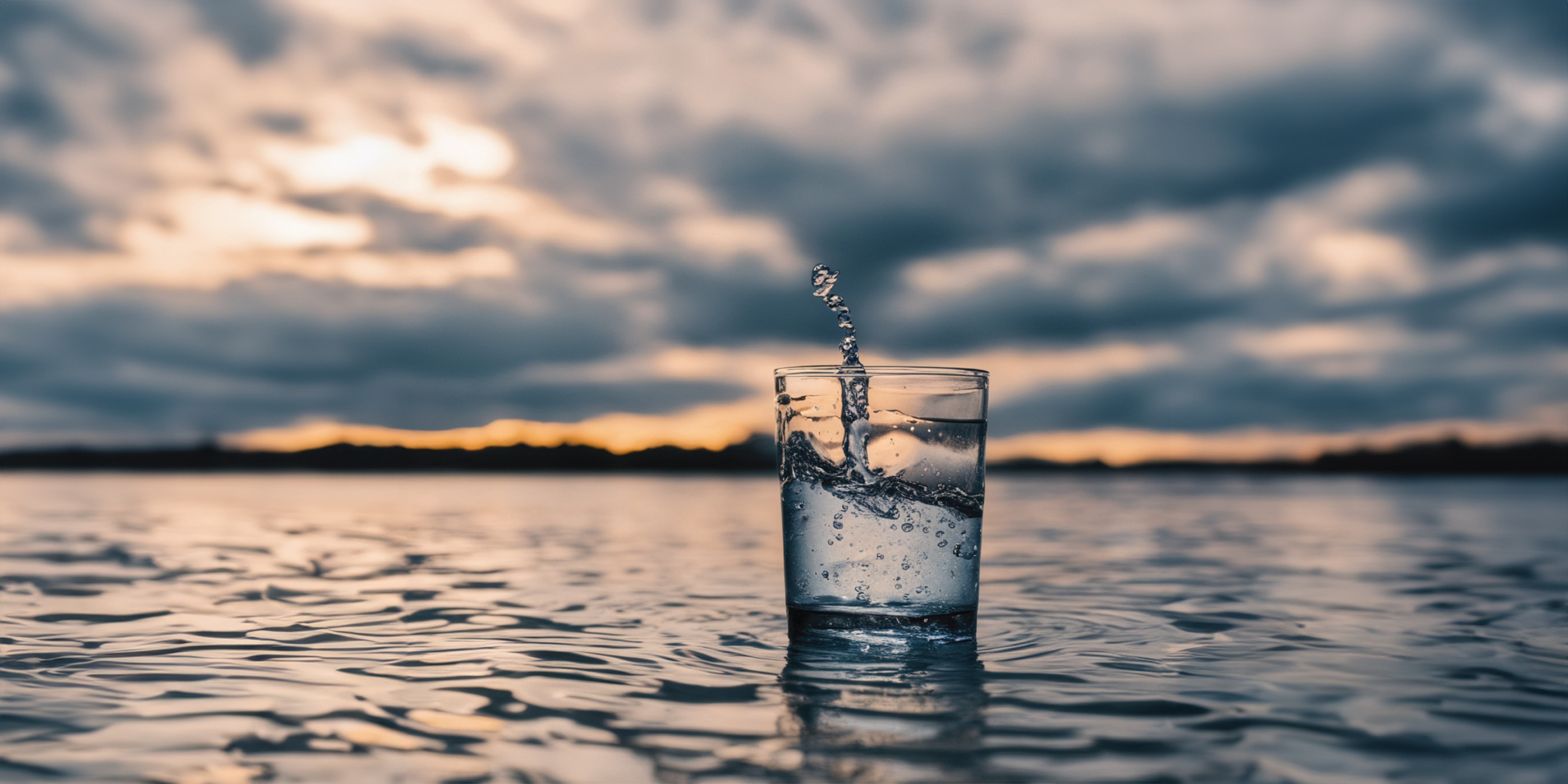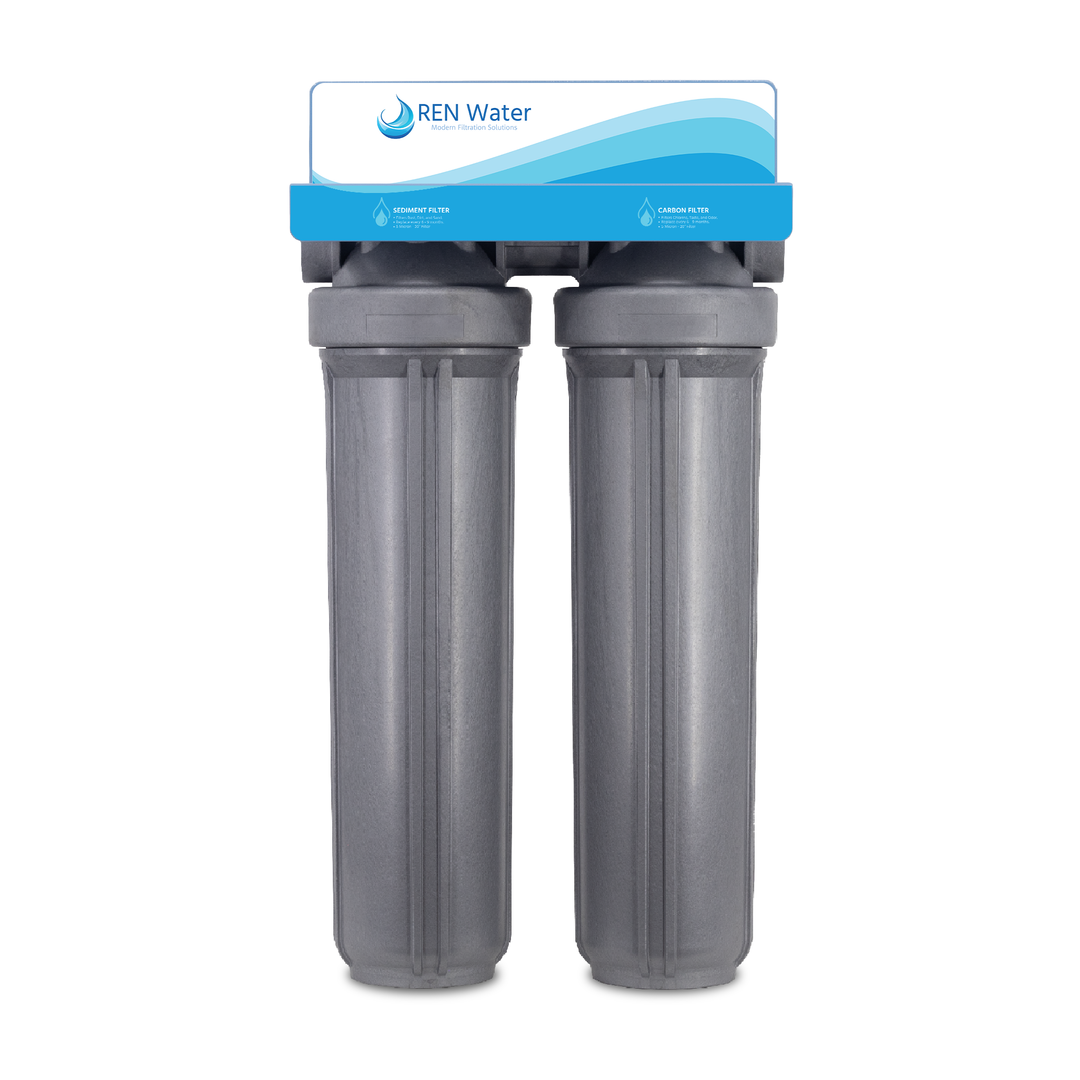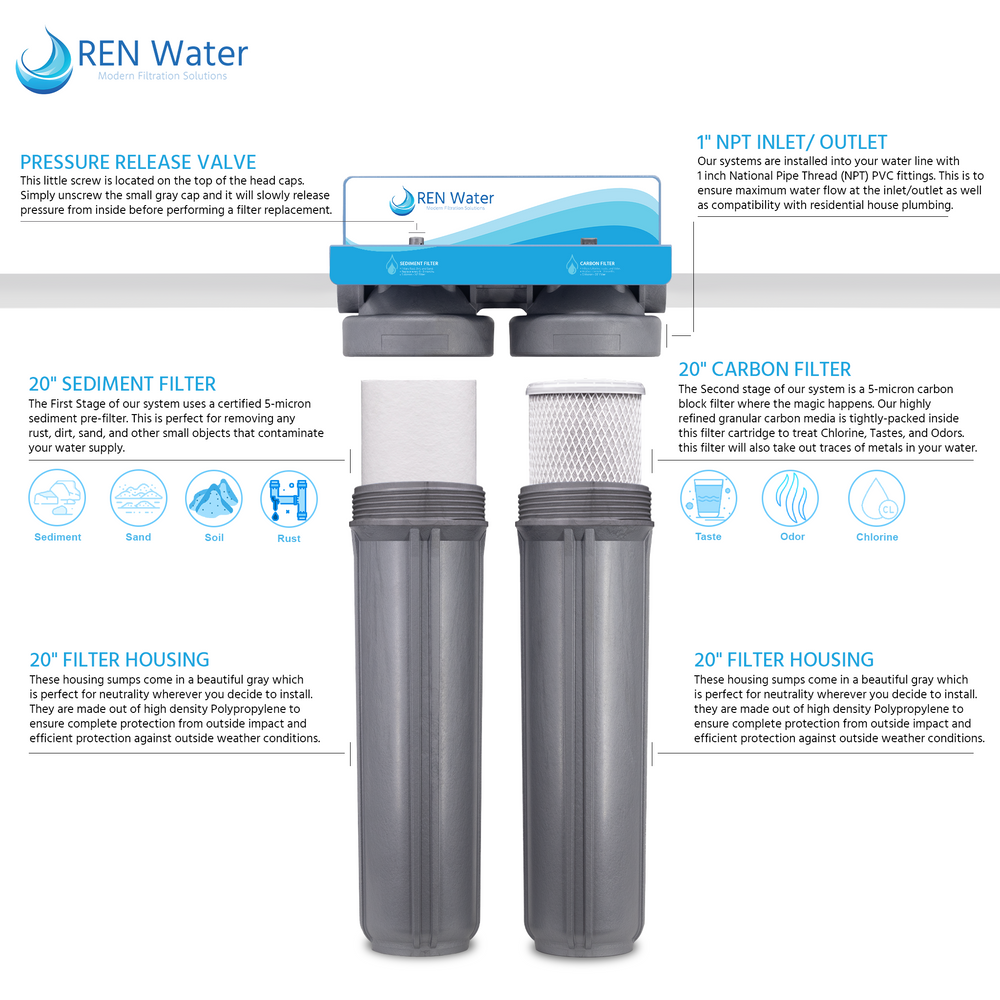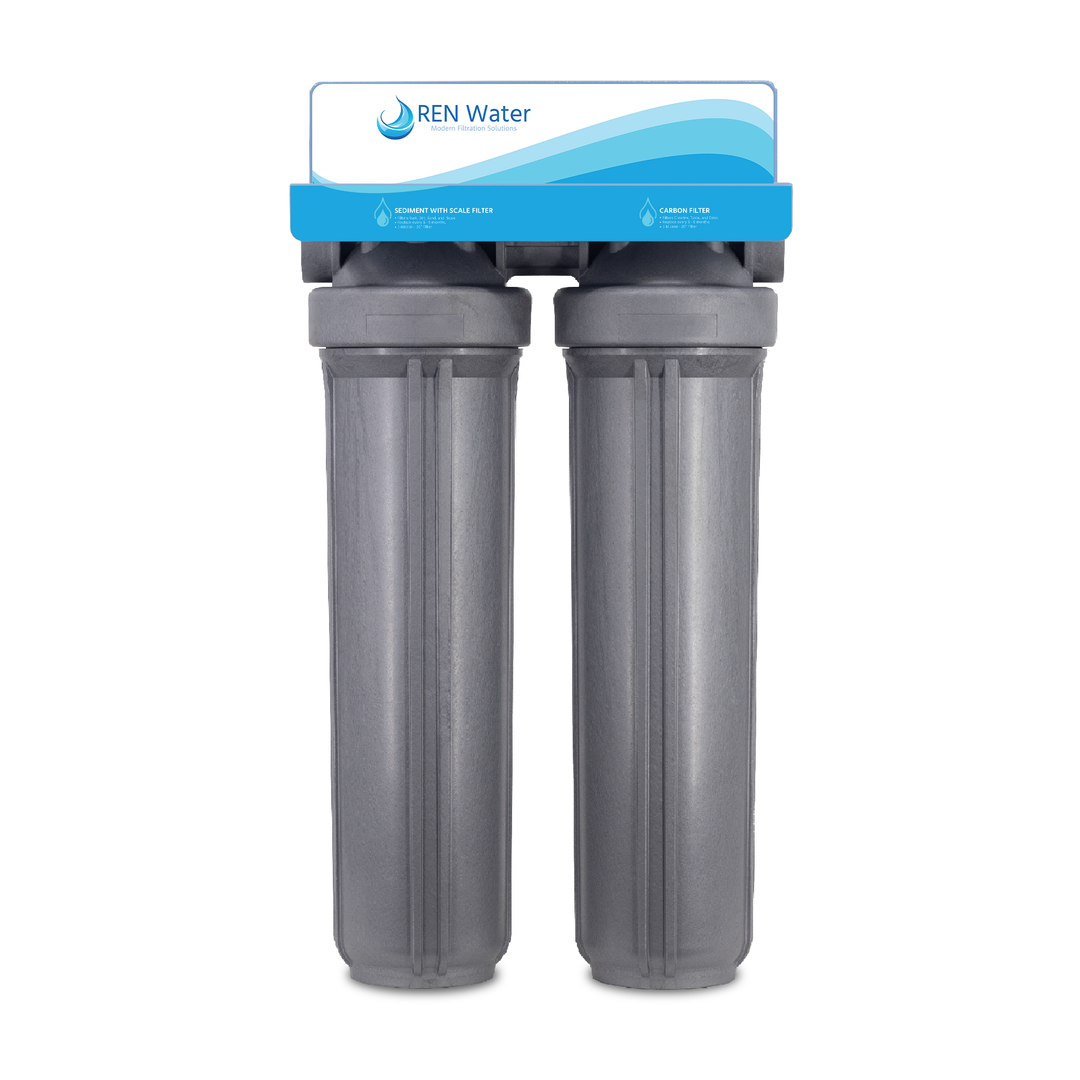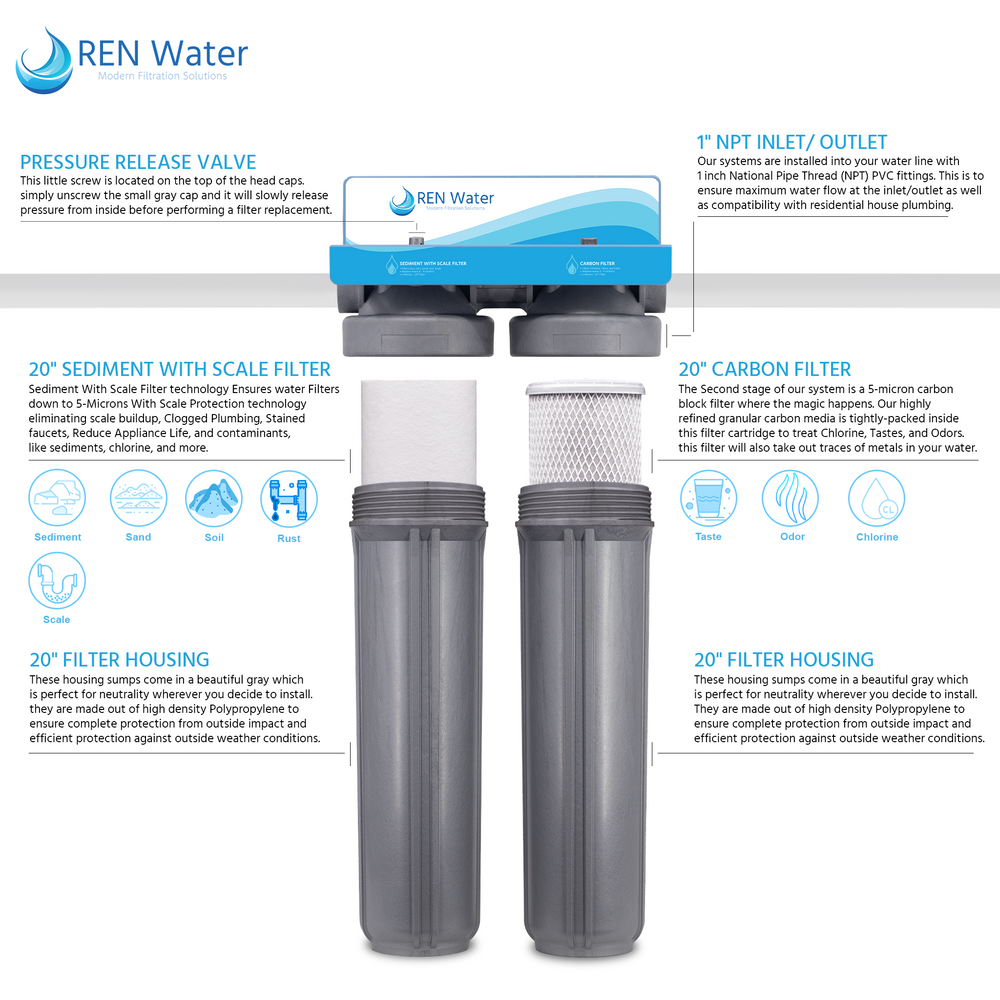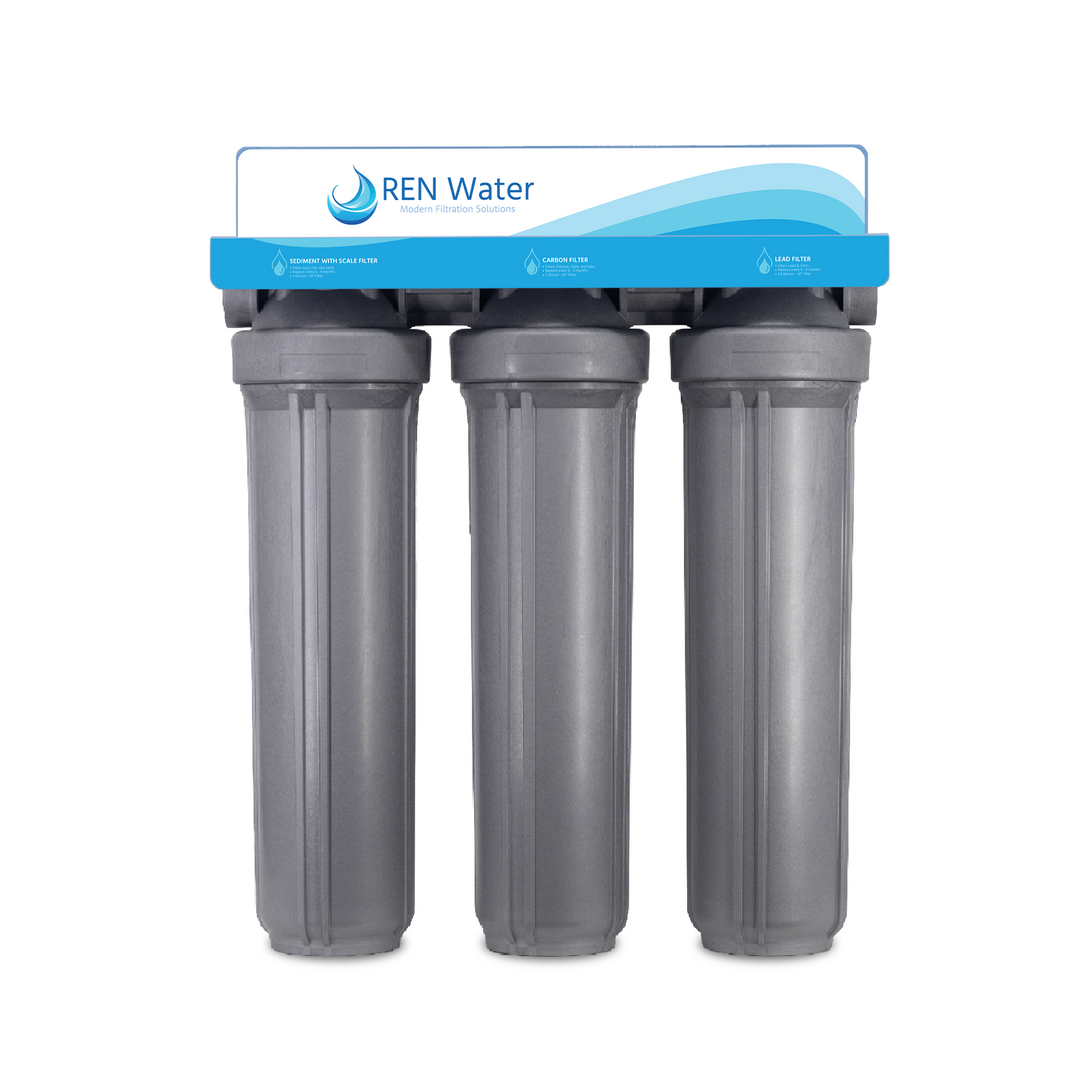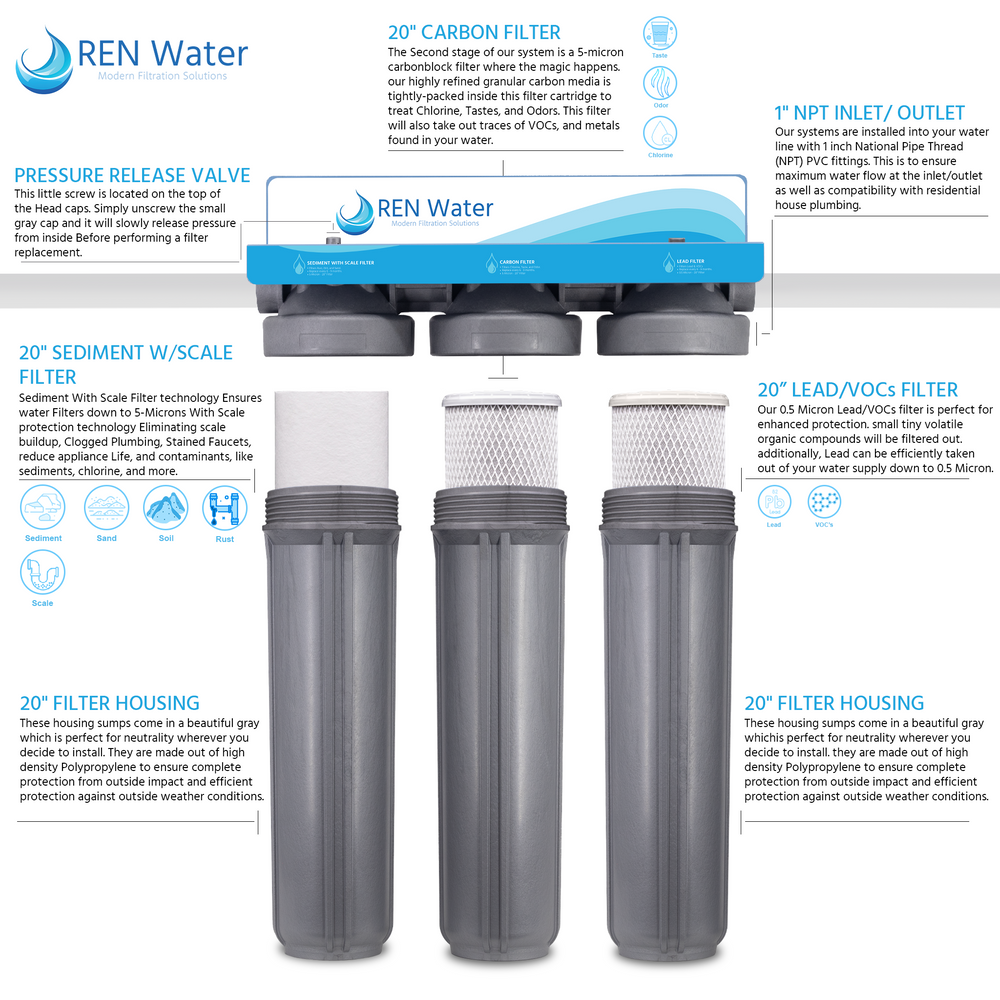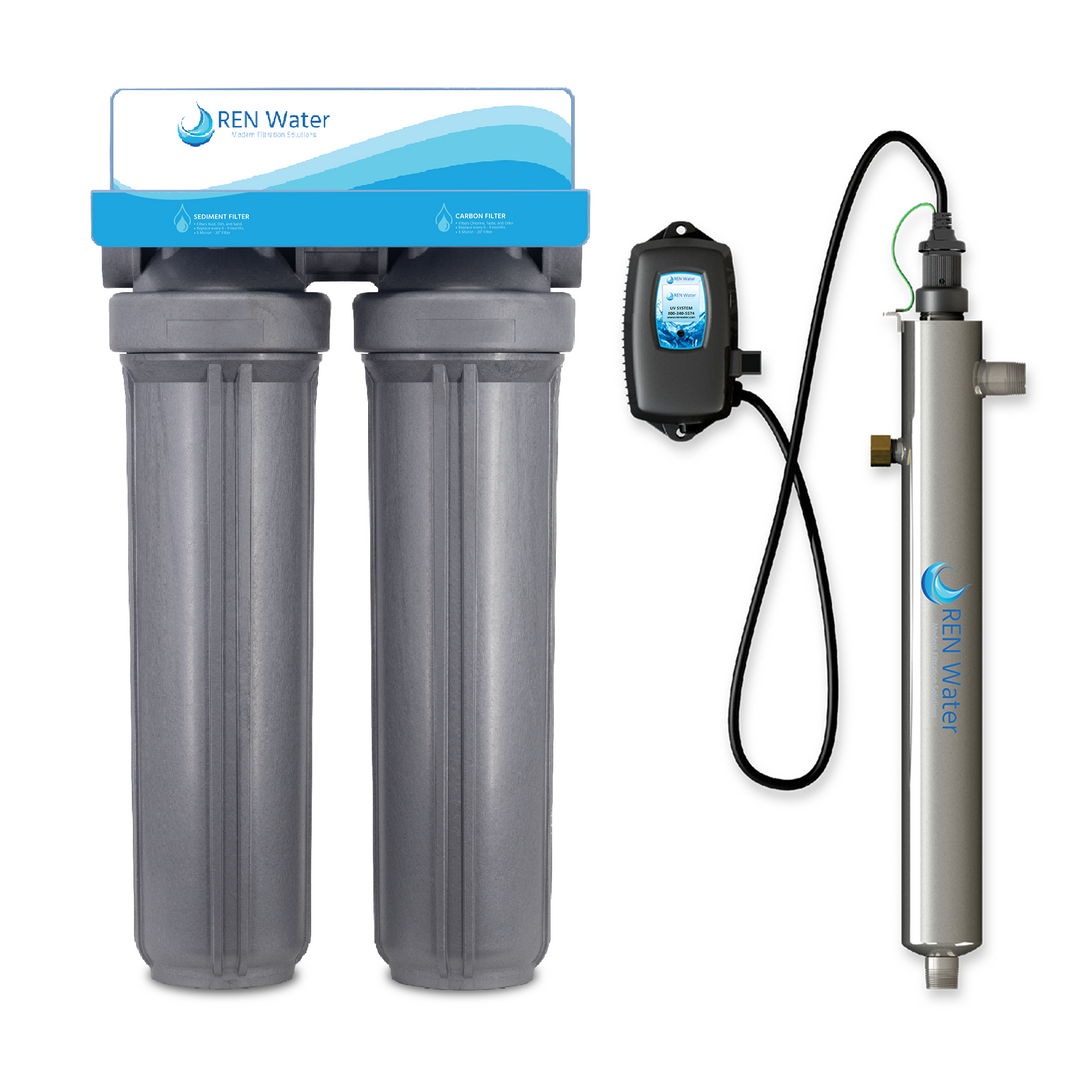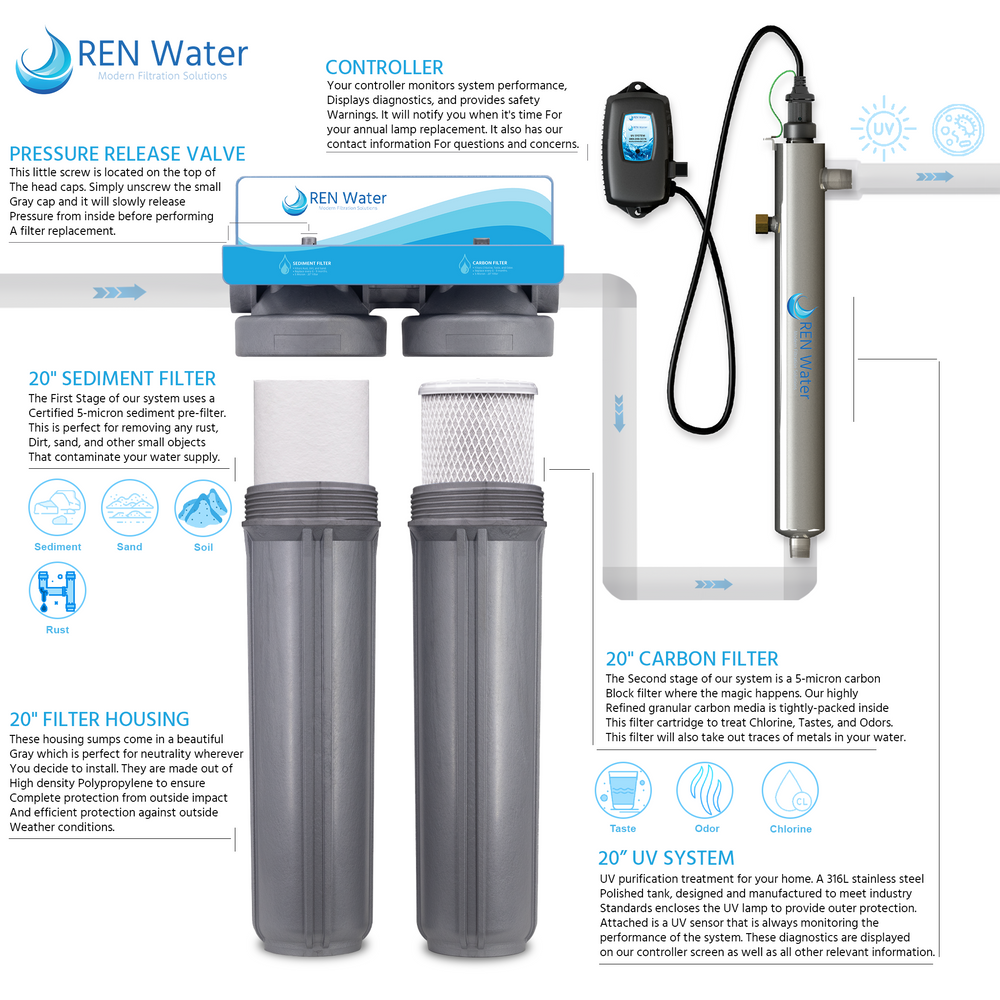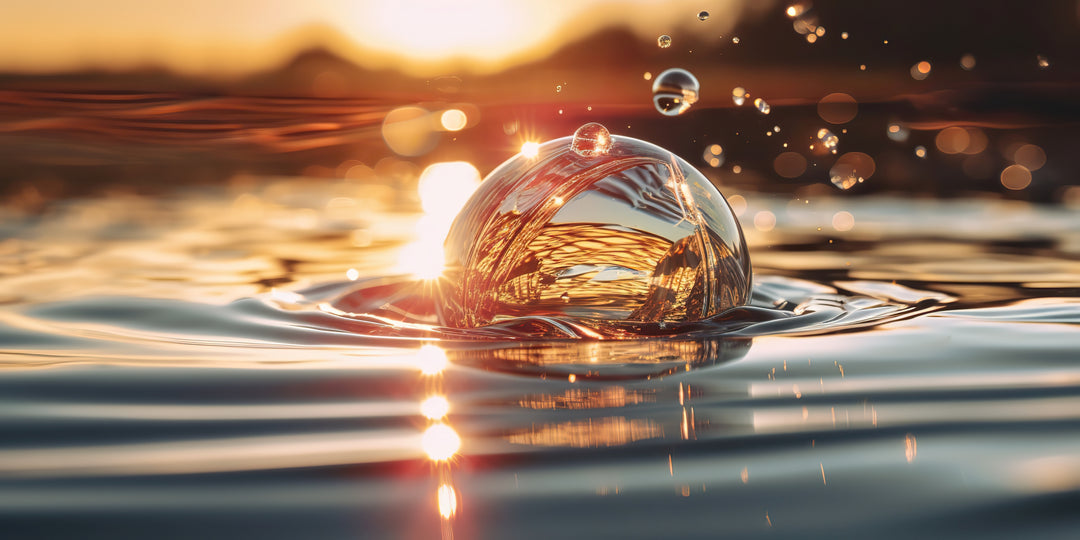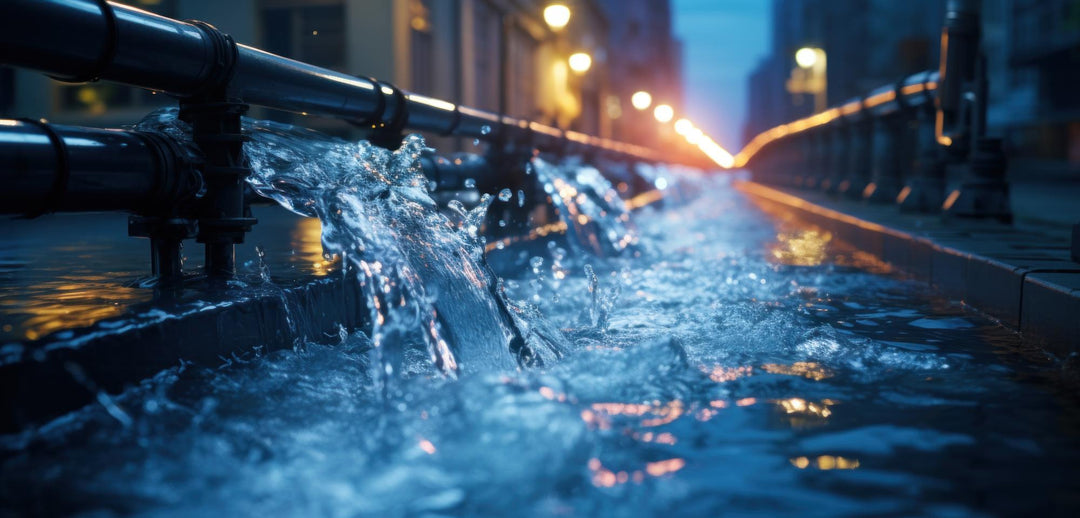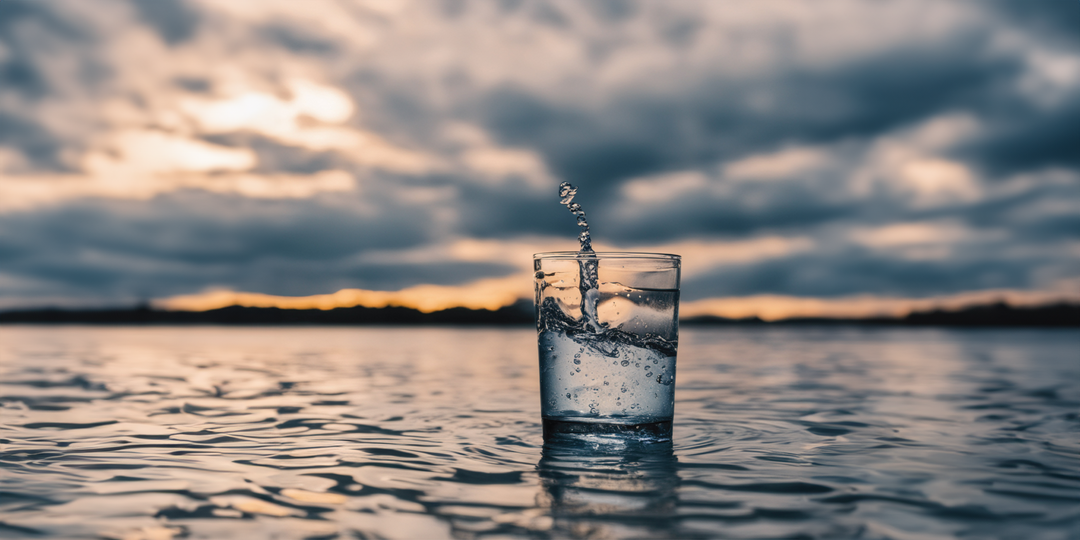Unlocking the Flow: A Comprehensive Guide to Hard Water Treatments for Your Home
Introduction
Hard water can be a persistent nuisance in many households, causing a range of issues from scale buildup in appliances to dry, itchy skin. In this guide, we'll explore the various treatments for hard water and delve into the most effective solutions to restore the flow in your home.
Table of Contents
- Understanding Hard Water
- The Detrimental Effects of Hard Water
- Testing and Identifying Hard Water
- DIY Solutions for Hard Water
- Advanced Hard Water Treatments
- Choosing the Right Treatment
- Conclusion
Understanding Hard Water
What is Hard Water?
Hard water is water that contains high levels of minerals, primarily calcium and magnesium. These minerals are picked up as water travels through soil and rock layers underground. The hardness of water is typically measured in grains per gallon (GPG) or parts per million (ppm).
How Does Water Become Hard?
As rainwater seeps into the ground, it percolates through layers of soil and rock, where it dissolves minerals like calcium and magnesium. The amount of minerals picked up by the water depends on the geology of the area it travels through. In regions with limestone or chalk formations, water tends to be harder due to higher levels of calcium carbonate.
Measuring Water Hardness
The hardness of water is typically measured in grains per gallon (GPG) or parts per million (ppm). One grain per gallon is equivalent to approximately 17.1 ppm. Water hardness is classified into categories based on the concentration of minerals:
- Soft water: 0-60 ppm
- Moderately hard water: 61-120 ppm
- Hard water: 121-180 ppm
- Very hard water: above 180 ppm
The Detrimental Effects of Hard Water
Hard water isn't just an inconvenience—it can have serious consequences for your home and your wallet. Let's explore some of the ways hard water can wreak havoc on your household:
-
Scale Buildup
One of the most visible effects of hard water is the formation of scale buildup. When water with high mineral content flows through your plumbing fixtures, appliances, and surfaces, it leaves behind deposits of calcium and magnesium. Over time, these deposits accumulate and harden, forming a stubborn, chalky residue known as scale.
-
Impact on Plumbing Fixtures
Scale buildup can wreak havoc on your plumbing fixtures, such as faucets, shower heads, and pipes. As minerals accumulate, they restrict the flow of water and reduce water pressure. This can lead to clogs, leaks, and even burst pipes if left untreated.
-
Reduced lathering
The minerals in hard water can interfere with the lathering ability of soap and detergents, leading to the need for increased product usage.
-
Appliance Damage
Household appliances are particularly vulnerable to the effects of hard water. Dishwashers, washing machines, and water heaters are all susceptible to scale buildup, which can coat heating elements, clog pipes, and reduce efficiency. The constant strain from hard water can cause appliances to wear out prematurely, leading to frequent repairs or replacement.
-
Increased Energy Bills
The presence of scale buildup in water-using appliances can also impact your energy bills. When heating elements are coated with mineral deposits, they must work harder to heat water, leading to increased energy consumption. Inefficient appliances may also require more frequent cycles or longer run times to achieve the same results, further driving up energy costs.
Impact on Household Tasks
Hard water can make everyday household tasks more challenging:
-
Cleaning: Soap scum and scale buildup can make cleaning surfaces like sinks, tubs, and showers more difficult.
-
Laundry: Hard water can cause clothes to feel stiff and scratchy due to soap residue left behind in the fabric fibers.
- Dishwashing: Dishes washed in hard water may appear cloudy or have spots due to soap scum and mineral deposits.
Regions Typically Affected by Hard Water
Hard water is a widespread issue across the United States, but certain regions are more prone to experiencing it due to geological factors. The prevalence of hard water is often influenced by the underlying rock formations and soil composition in a particular area. Some regions known for having hard water include:
-
Midwest: States like Indiana, Ohio, Michigan, and Illinois are often affected by hard water due to their abundance of limestone bedrock. Limestone contains high levels of calcium carbonate, which contributes to water hardness.
-
Southwest: Arid regions like Arizona, New Mexico, and Nevada frequently experience hard water due to the presence of minerals in the soil and scarcity of rainfall to dilute them.
-
West Coast: States along the West Coast, including California, Oregon, and Washington, may also have hard water issues, particularly in areas with rocky terrain and mineral-rich soil.
-
Northeast: Parts of the Northeast, such as New York, Pennsylvania, and New England states, may have hard water due to the presence of granite and other mineral-rich rock formations.
Testing and Identifying Hard Water
Is Your Home Affected? Recognizing the Signs
Before choosing a treatment method, it's essential to determine whether your home is affected by hard water. Signs of hard water include:
- White, chalky deposits on faucets, showerheads, and dishes.
- Dry, itchy skin and frizzy, damaged hair after showering.
- Reduced lathering of soap and shampoo due to mineral interference.
DIY Hard Water Test
You can conduct a simple test at home to check for hard water using a water bottle and liquid soap. Here's how:
- Fill a clear water bottle with water from your tap.
- Add a few drops of liquid soap and shake the bottle vigorously.
- If the water becomes cloudy or forms suds that disappear quickly, you likely have hard water.
Hard Water Test kit
Determining whether your water is contaminated. Public water suppliers are typically required to test for contaminants levels, and the results should be accessible to the public. If you rely on a private well for your water supply, it's advisable to have it tested for all contaminants.
We know how important it is for you to make sure that your family and loved one's are healthy and safe, That's why REN Water partnered with HealthGuard Lab's a certified laboratory that utilizes advanced testing methods. HealthGuard Labs kits deliver precise and reliable results, ensuring you have accurate information about your water quality.
WATER TEST KIT
Taking Matters into Your Own Hands: DIY Hard Water Treatments
If you're dealing with mild to moderate hard water issues, there are several DIY treatments you can try
-
Specialty Shampoo & Soap: Use clarifying shampoos and soaps to counteract hard water effects on hair and skin. Look for products with moisturizing ingredients to prevent dryness.
-
Showerhead Filters: Install filters to remove hard water minerals from shower water, improving skin and hair condition. Consider products like the Premium Chrome Shower Water Filter.
- Rinse Aids: Add rinse aids to dishwashers to prevent spots and calcium buildup on dishes and glassware, ensuring a sparkling clean finish.
The Benefits of Salt-Free Water Softening Systems
Salt-free water softening systems have gained popularity in recent years as an alternative to traditional salt-based water softeners. While both types of systems aim to reduce the effects of hard water, salt-free systems offer several advantages that make them a preferred choice for many homeowners. Let's explore why salt-free systems are considered better:
1. Environmentally Friendly
Salt-free water softeners operate without the need for salt or chemicals, making them environmentally friendly options for water treatment. Unlike salt-based systems, which require regular replenishment of salt pellets, salt-free systems do not produce any wastewater or brine discharge during the softening process. This reduces the impact on the environment and eliminates the need for salt bags to be transported and disposed of.
2. Maintenance-Free Operation
Salt-free water softeners require minimal maintenance compared to their salt-based counterparts. Because they do not use salt or require regeneration cycles, there is no need to monitor salt levels or perform routine maintenance tasks such as adding salt or cleaning brine tanks. This makes salt-free systems a convenient and hassle-free option for homeowners looking for low-maintenance water treatment solutions.
3. Preserves Essential Minerals
Unlike salt-based water softeners, which remove calcium and magnesium ions through ion exchange, salt-free systems use alternative technologies such as template-assisted crystallization (TAC) or catalytic media to condition the water without removing minerals. This means that while salt-free systems prevent scale buildup and improve water quality, they do not strip the water of essential minerals that are beneficial for health.
4. Health Benefits
Since salt-free water softeners do not add sodium to the water, they are a suitable option for individuals on low-sodium diets or those concerned about their sodium intake. By preserving the natural mineral content of the water, salt-free systems provide a healthier alternative to salt-based softeners without compromising water quality.
5. Cost-Effective
While salt-free water softeners may have a higher upfront cost compared to salt-based systems, they often prove to be more cost-effective in the long run. Salt-free systems require less maintenance and do not incur ongoing expenses for salt purchases, regeneration cycles, or wastewater disposal. Additionally, salt-free systems typically have a longer lifespan and may offer better energy efficiency, resulting in lower overall operating costs over time.
Advanced Hard Water Treatments
Elevating Your Defense: Advanced Hard Water Solutions
For severe hard water issues, advanced treatments may be necessary:
-
Appliance Cleaners: Use acidic or chlorine-based cleaners to remove stubborn scale buildup from appliances. Consider products designed specifically for this purpose.
-
Water Softeners: Invest in a water softener to prevent mineral buildup throughout your home. Salt-based and salt-free options are available, with features like self-cleaning brine injectors for low maintenance.
- Whole House Water Filtration Systems: Opt for a comprehensive filtration system to address hard water and other contaminants. Look for systems that remove contaminants like chlorine, chloramines, lead, PFAS, bacteria, and VOCs for improved water quality.
Choosing the Right Treatment
NSF Certification
When investing in water filtration systems, look for products certified by the National Sanitation Foundation (NSF). NSF certification ensures that a product meets strict standards for quality, performance, and safety. Choosing NSF-certified filters provides assurance that the system is reliable and effective in removing contaminates from your water supply. This stamp of approval ensures that the product adheres to stringent quality and safety standards, making it a reliable choice for those seeking a water treatment solution they can trust.
Finding Your Perfect Fit: Selecting the Right Hard Water Treatment
When choosing a hard water treatment, consider factors such as the severity of your hard water issues, budget, and filtration needs. Consult with a water treatment specialist to determine the best solution for your home. Companies like Pentair Water Solutions offer a range of residential water solutions tailored to your needs.
Conclusion
Don't let hard water wreak havoc on your home and health. With the right treatment plan, you can enjoy cleaner water, healthier skin and hair, and prolong the life of your appliances. Take action today to unlock the flow in your home and experience the benefits of soft, pure water.
By implementing these hard water treatments, you can bid farewell to scale buildup and enjoy the benefits of clean, fresh water throughout your home. Remember, addressing hard water issues is not just about convenience—it's about safeguarding your health and preserving the integrity of your home.


